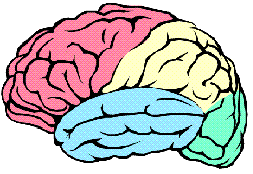
The Assistive Technology Industry Association (ATIA) Webinar Series
provides a collection of topics for educators, rehab professionals, assistive technology specialists, individuals with disabilities and their families, and others who are looking to broaden their knowledge of assistive technology and the evaluation skills needed to assess the products. These topics include a general overview of AT, augmentative communications, technology for the blind or visually impaired, and topics to assist those providing support to students with special needs.
Each webinar is being presented by national leaders in their field.
Note: there is a fee for some (if not all) of these webinars:
-Selecting Software for Students with Learning Disabilities: An Instructional Resource:
Tuesday, September 1: 4:00 p.m. - 5:00 p.m. Eastern time
This webinar will discuss how selecting appropriate educational software for students with learning disabilities can often be a difficult and complicated process. This online resource helps people to better understand the nature of different learning disabilities as well as identify appropriate and effective educational software to deal with specific cognitive and achievement deficits- as identified through common learning disability testing instruments. Learn how this resource came to be created, and how you can use it to better help your students with learning disabilities.
Jayme Johnson is the Web Accessibility Instructor at the High Tech Center Training Unit (HTCTU) for the California Community Colleges. Jayme conducts workshops and trainings in the areas of assistive computer technology and web accessibility, including instructional design and technology, assistive computer technology applications, emerging technologies and media, distance education, and related access issues.
-Technology for People Who Are Blind or Visually Impaired
Presenter: William Bielawski, Director of Adaptive Technology Center, The Chicago Lighthouse for People Who Are Blind or Visually Impaired
Thursday, September 3: 4:00 p.m. - 5:30 p.m. Eastern time
This webinar is a complete examination of the current technology used by people who are blind or visually impaired to access information on paper or electronic information. It will trace the recent evolution of this technology and the implications for today's young students, college students, working adults, and seniors.
After a career at Bell Laboratories, William Bielawski joined The Chicago Lighthouse for People Who Are Blind or Visually Impaired as Director of the Adaptive Technology Center and Office Skills Training. Bill was co-founder of the Illinois Association for Parents of Children with Visual Impairments (IPVI) in 1986 and is its President. Bill is also the Blindness Strand Advisor for the Assistive Technology Industry Association (ATIA) 2009 Chicago Conference in October.
-Stirring the Alphabet Soup: Blending AT, UDL, RTI, and AIM to Increase Achievement
Presenters: Joy Zabala, Ed.D., ATP, CAST (Center for Applied Special Technology): Diana Carl, Independent Consultant, Vicki Hershman, PATINS State Project Director (Indiana), Indiana Department of Education/Division of Student Learning/Office of Differentiated Learners
Wednesday, September 9: 4:00 p.m. - 5:30 p.m. Eastern time
-AIMing for Achievement!: What YOU Need to Know about the Selection, Acquisition, and Use of Accessible Instructional Materials
Presenters: Jeff Diedrich, Michigan Integrated Technology Services; Skip Stahl, CAST (Center for Applied Special Technology); Jenna Wasson Gravel, CAST; Joy Zabala, Ed.D., ATP, CAST
Thursday, September 10: 4:00 p.m. - 5:30 p.m. Eastern time
-Overview of Assistive Technology
Presenter: Russ Holland, Program Director, Alliance for Technology Access
Wednesday, September 16: 4:00 p.m. - 5:30 p.m. Eastern time
Go to our website for session abstracts, learning outcomes, and speaker biographies
To view the SCATP website, please click on the link above.






























